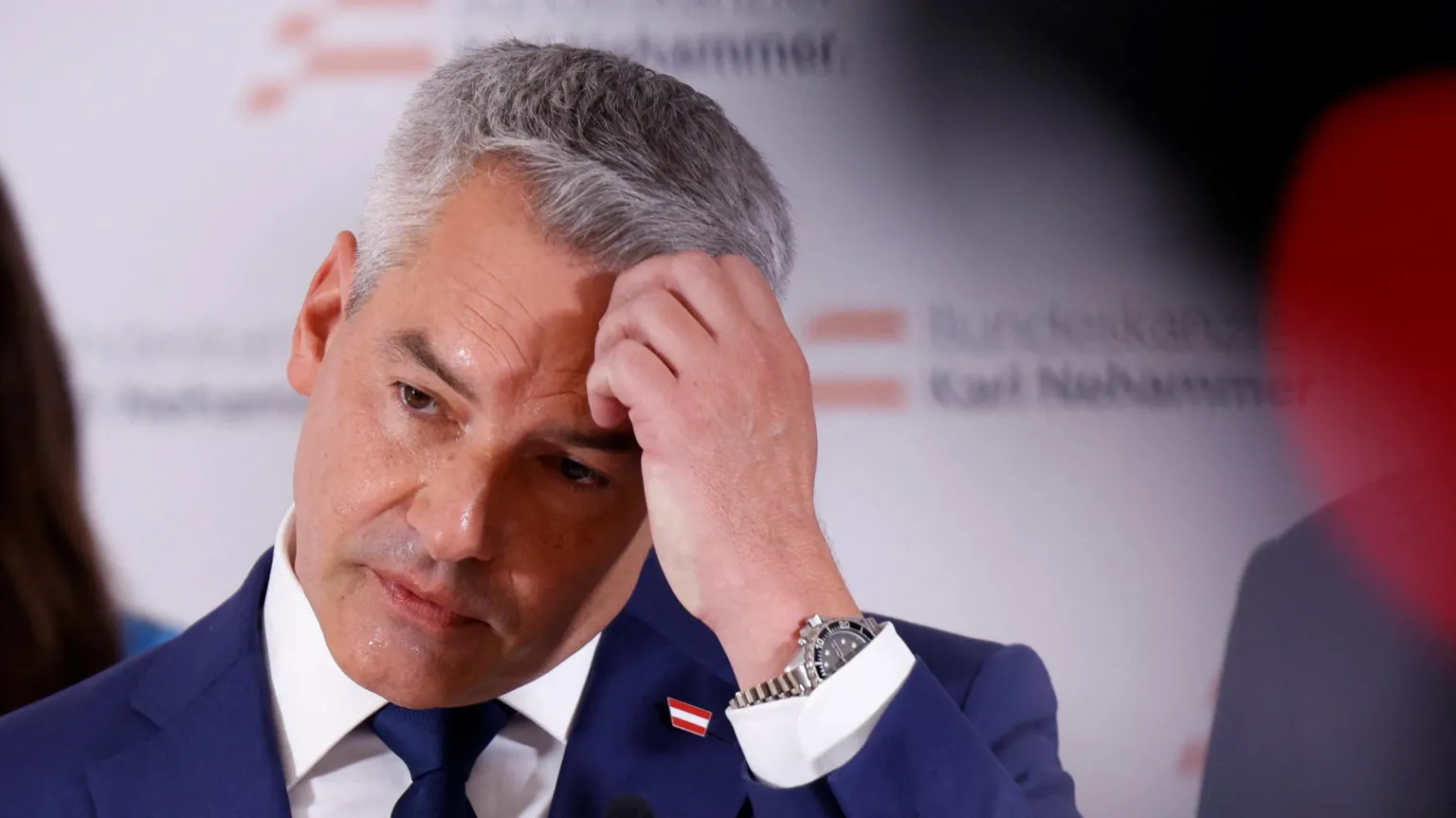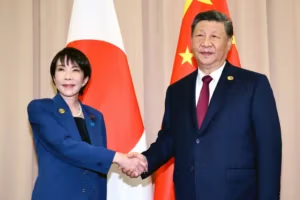Austria’s Chancellor Karl Nehammer has announced his resignation as both chancellor and leader of the conservative People’s Party (ÖVP) following the collapse of coalition talks. The failure to form a government signals political instability in Austria and raises the prospect of either a new election or an alliance involving the far-right Freedom Party (FPÖ).
Failed Coalition Talks
The coalition negotiations involved Nehammer’s ÖVP, the Social Democrats (SPÖ), and the liberal Neos. However, key policy disagreements led to the talks breaking down, with the Neos withdrawing from discussions on Friday. Nehammer cited the inability to find common ground as the reason for his departure.
The FPÖ, which emerged as the dominant force in Austria’s September general election with 29% of the vote, has been excluded from coalition talks due to its controversial platform and leader, Herbert Kickl. However, the collapse of talks may push the ÖVP to consider negotiating with the far-right party or pave the way for another election.
Statt Tempo bei der Regierungsbildung haben wir nun drei verlorene Monate, statt Stabilität haben wir Chaos.
— FPÖ (@FPOE_TV) January 4, 2025
Mit Nehammer sind auch Babler und Van der Bellen gescheitert. Sie waren die Architekten der Verlierer-Ampel und stehen nun vor den Trümmern ihrer… pic.twitter.com/BUntucPzsy
Rise of the FPÖ and Political Uncertainty
The FPÖ’s growing influence has reshaped Austria’s political landscape. The party capitalized on public concerns about migration, asylum policies, a struggling economy, and the ongoing war in Ukraine. Its platform includes building “Fortress Austria,” enforcing stricter immigration rules, and promoting “remigration,” a controversial policy advocating the return of asylum seekers to their home countries.
Despite its success, the FPÖ remains mired in controversy. The party, founded in the 1950s by former Nazis, faced backlash last year when some candidates were filmed at a funeral where an SS-era song was sung. The FPÖ denied any link between the song and Nazi ideology, but the incident highlighted the party’s contentious history.
Blame Game and Calls for Resignations
The FPÖ has accused other parties and President Alexander Van der Bellen of causing political chaos, claiming that the three months spent in coalition talks were wasted. The party also called for Social Democrat leader Andreas Babler to step down, criticizing his role in the failed negotiations.
The political uncertainty comes at a time of high voter engagement; the September election saw a turnout of 77.3%, with migration and economic concerns dominating the discourse.
What’s Next for Austria?
Analysts suggest that the ÖVP may now engage with the FPÖ, despite previous reluctance, or that the country could head to another election. The FPÖ, which has seen its popularity grow further in recent months, may welcome this scenario as an opportunity to solidify its position.
As Austria grapples with political turbulence, the resignation of Chancellor Nehammer underscores the challenges of forming a stable government in an increasingly polarized political climate.





